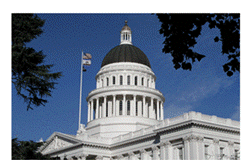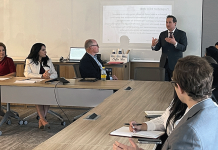 This legislative session, the California Chamber of Commerce identified more than 130 bills that would have increased costs or imposed regulatory burdens on California employers, jeopardizing businesses and the state’s economy at a crucial point in the COVID-19 pandemic recovery.
This legislative session, the California Chamber of Commerce identified more than 130 bills that would have increased costs or imposed regulatory burdens on California employers, jeopardizing businesses and the state’s economy at a crucial point in the COVID-19 pandemic recovery.
Thanks to the efforts of the CalChamber and allied organizations, many of these onerous bills have been stopped for the year. Only 2 of the 25 job killer bills identified this year remain standing, and 30 CalChamber-opposed bills have been stalled.
Here are some of the CalChamber-opposed bills that business groups and the CalChamber have helped stop:
Labor and Employment
- AB 995 (Lorena Gonzalez; D-San Diego): Would have imposed new costs and leave requirements on employers of all sizes by expanding the number of paid sick days employers are required to provide, which is in addition to all of the recently enacted leave mandates (COVID-19 sick leave, Cal/OSHA emergency paid time off, California Family Rights Act leave, workers’ compensation, etc.) that small employers throughout the state are already struggling with to implement and comply.
- AB 1119 (Wicks; D-Oakland): Would have imposed new burdens on employers to accommodate any employee with family responsibilities, which would have essentially included a new, uncapped protected leave for employees to request time and exposes employers to costly litigation under the Fair Employment and Housing Act that any adverse employment action was in relation to the employee’s family responsibilities, rather than a violation of employment policies.
- AB 1179 (Carrillo; D-Los Angeles): Would have imposed a new, costly mandate on public and private employers to cover up to 60 hours of employees’ childcare costs each year, with any alleged violation resulting in litigation under the Private Attorneys General Act (PAGA).
- AB 1192 (Kalra; D-San Jose): Would have placed new onerous administrative burdens on employers by requiring annual reporting of wage and hour data and employee benefits on an employer’s entire United States workforce that would have publicly shamed employers for lawful conduct by publishing that data on the Labor and Workforce Development Agency’s website, and would have subjected employers to frivolous litigation and settlement demands.
- AB 1465 (Reyes; D-San Bernardino): Prior to amendments, would have mandated the creation of state-run Medical Provider Network for workers’ compensation claims, which would have imposed millions of dollars of costs on the current system as well as the state while reducing injured workers’ access to quality care. CalChamber job killer tag and opposition were removed due to April 26, 2021 amendments narrowing the bill to only require a study of access to workers’ compensation care in medical provider networks.
- SB 213 (Cortese; D-San Jose): Would have significantly increased workers’ compensation costs for public and private hospitals by presuming certain diseases and injuries are caused by the workplace and would have established an extremely concerning precedent for expanding presumptions into the private sector.
Tax Increases
- AB 71 (Luz Rivas; D-Arleta): Would have significantly increased the taxation on the gross income of international companies to create a homelessness fund, thereby shifting the responsibility of the crisis onto the private sector, despite the state’s $15 billion in unexpected revenue. In Assembly inactive file.
Health Care
- SB 568 (Pan; D-Sacramento): Would have increased health care costs by prohibiting a deductible requirement for a covered prescription drug as well as certain equipment and supplies, and would have limited the amount paid for the benefit to no more than the amount of copayment or coinsurance specified in the applicable summary of benefits and coverage.
Environmental
- AB 426 (Bauer-Kahan; D-Orinda): Would have expanded the authority of Regional Air Districts to regulate mobile sources and additional pollutants, which are already the purview of the Air Resources Board, resulting in duplicative regulations and increased costs.
- AB 1001 (Cristina Garcia; D-Bell Gardens): Would have threatened substantial increases in the cost of goods and services of entities subject to cap-and-trade by doubling our 2030 carbon emissions reduction goals.
- AB 1547 (Reyes; D-San Bernardino): Would have duplicated the California Environmental Quality Act and created an across-the-board buffer for warehouse projects, usurping local authority over land use decisions.
- SB 260 (Wiener; D-San Francisco): Would have imposed a mandatory climate tracking, auditing, and cap on climate emissions that would have fallen heavily on all California businesses, impacting competitiveness and increasing costs.
- SB 449 (Stern; D-Canoga Park): Would have required any business with revenues over $500 million annually to prepare a financial risk assessment on its holdings including any supply chain assets.
Infrastructure
- SB 12 (McGuire; D-Healdsburg): Would have established legally treacherous land use hurdles that would have provided NIMBY opponents with additional tools to block the development of housing in very high fire severity zones even though housing projects will be required to develop to the highest building code and fire resiliency standards in the world.
Privacy and Consumer Protection
- AB 613 (Cristina Garcia; D-Bell Gardens): Would have required platforms, as defined, to place labels on images, specifically those that have been altered with regard to bodily figure or skin, and are posted for promotional or commercial purposes.
Recycling
- AB 1371 (Friedman; D-Glendale): Would have banned critical packaging materials from being able to be sold or distributed in California without regard for whether any adequate substitutes are available nor how such a policy would lead to more waste created by spoilage and breakage and additional greenhouse gas (GHG) emissions from much heavier packaging.


